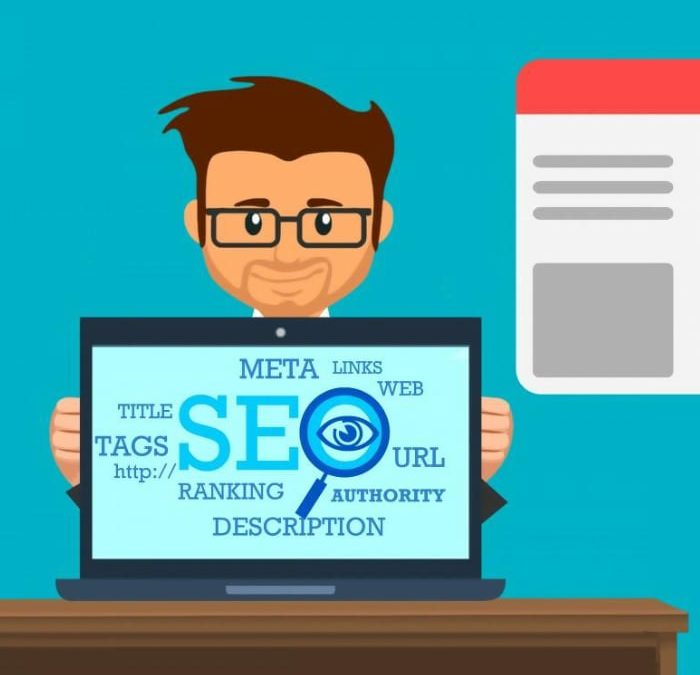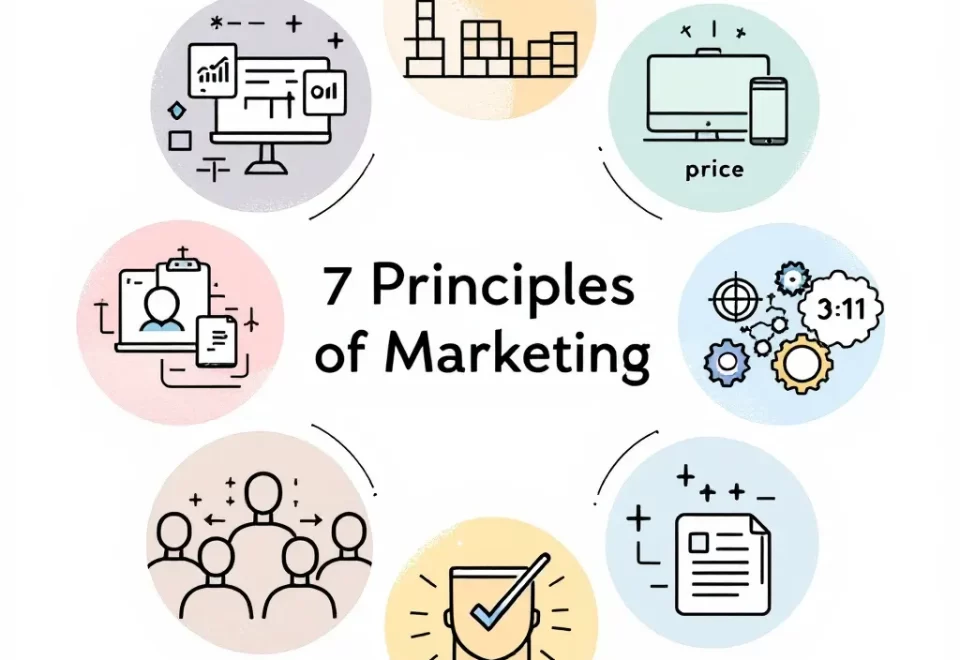SEO marketing is no longer a bonus to your digital marketing strategy, but a big must that you cannot neglect. As a webmaster, marketer, or digital entrepreneur, making sure that your business is present in the SERPs is one of the best competitive advantages you can create to benefit from targeted and qualitative traffic.
Considering that more than 75% of search engine users are never moving beyond the first page of Google to seek what they’re looking for, it is crucial that your website ranks properly now and forever.
Ranking is a delicate and complex process that is influenced by many factors. It is a “game” of patience, numbers, knowledge, and strategies that every modern business is trying to win. If you’re new to SEO, this post is going to be a game-changer.
Ranking is a delicate and complex process that is influenced by many factors. It is a “game” of patience, numbers, knowledge, and strategies that every modern business is trying to win. If you’re new to SEO, this post is going to be a game-changer.
Why Do You Need SEO?
Among all digital marketing strategies, SEO is probably the most effective tactic to improve your brand’s awareness, gain targeted leads, and generate a lot of sales.
The first and most important benefit of ranking high in the search engines is traffic. If your website is featured in the first spots of the search page when it comes to industry-related keywords, you’re going to acquire free organic traffic in a passive mode. That means you won’t have to pay advertising networks (FB ads, Google PPC AdWords, etc.) to send you potential customers.
Secondly, when your website ranks high, you’ll be perceived as an authority in the field, meaning that your prospects will not feel like they’re browsing the pages and products of a “no-name” brand. This is a huge competitive advantage that every business needs in order to outshine the competition.
Lastly, SEO is the most effective channel that attracts quality and “warm” leads vs cold leads. For example, when people search for “red shoes for women NY,” they’ve already decided that they want to buy something specific. If your page pops up and your products are relevant, users won’t feel the need to seek another website, gain additional information, or take more time to count their decision.
Since you need to be on the first page to attract potential customers, you need to design and implement an effective SEO strategy that will put you in front of everyone else.
Now that you understand the amazing benefits of ranking your website high in the search engines, let’s have a look at how you can perform SEO like a pro by following these ten steps. Note that those steps can be used for enterprise SEO as well as for startups and small businesses. Let's dive in...
Secondly, when your website ranks high, you’ll be perceived as an authority in the field, meaning that your prospects will not feel like they’re browsing the pages and products of a “no-name” brand. This is a huge competitive advantage that every business needs in order to outshine the competition.
Lastly, SEO is the most effective channel that attracts quality and “warm” leads vs cold leads. For example, when people search for “red shoes for women NY,” they’ve already decided that they want to buy something specific. If your page pops up and your products are relevant, users won’t feel the need to seek another website, gain additional information, or take more time to count their decision.
Since you need to be on the first page to attract potential customers, you need to design and implement an effective SEO strategy that will put you in front of everyone else.
Now that you understand the amazing benefits of ranking your website high in the search engines, let’s have a look at how you can perform SEO like a pro by following these ten steps. Note that those steps can be used for enterprise SEO as well as for startups and small businesses. Let's dive in...
#1 Set Up Analytics
The first crucial step you need to take before executing any SEO strategy? Set up analytics. If you haven’t done it already, you must do it right now.
Google Analytics is the most popular free web analytics tool that is used by millions of webmasters worldwide.
As you start generating traffic, you’ll want to figure out what content brings the most traffic, what websites/social channels are sending you the most traffic, and which geographic regions visit your website the most. Moreover, Google Analytics provides reports that show you the average time spent on pages, and the average bounce rate (how many users immediately exit your site).
By optimizing your SEO and analytics, you'll start getting more sales. As you begin implementing SEO strategies, you’ll need to track in real-time what impact your tactics bring. Without an analytics tool, it will be impossible to know if you’re actions are generating a positive impact.
As you start generating traffic, you’ll want to figure out what content brings the most traffic, what websites/social channels are sending you the most traffic, and which geographic regions visit your website the most. Moreover, Google Analytics provides reports that show you the average time spent on pages, and the average bounce rate (how many users immediately exit your site).
By optimizing your SEO and analytics, you'll start getting more sales. As you begin implementing SEO strategies, you’ll need to track in real-time what impact your tactics bring. Without an analytics tool, it will be impossible to know if you’re actions are generating a positive impact.
#2 Understand Your Target Audience’s Search Behavior
There are many SEO strategies and techniques you can implement but first, think about Google’s purpose and your own online search experience. Google tries to provide the most relevant answers to its target audience. You, the user, are looking for exactly the same thing.
Whenever you search for something, you’re expecting accurate answers, details, addresses, images, dates, or definitions. You also want your answers to be delivered in a matter of seconds. Guess what – your target audience wants exactly the same thing.
As a business, you’ll want to read your customer’s minds and provide the most relevant answers to their needs and problems.
Put yourself in your customer’s shoes. What are their intentions? What are their problems? What are their needs? What are their desires? What do they want to know?
Try inserting various keywords and see what pops up. Analyze the first search results and look for competitors that are “getting it right.”
Whenever you search for something, you’re expecting accurate answers, details, addresses, images, dates, or definitions. You also want your answers to be delivered in a matter of seconds. Guess what – your target audience wants exactly the same thing.
As a business, you’ll want to read your customer’s minds and provide the most relevant answers to their needs and problems.
Put yourself in your customer’s shoes. What are their intentions? What are their problems? What are their needs? What are their desires? What do they want to know?
Try inserting various keywords and see what pops up. Analyze the first search results and look for competitors that are “getting it right.”
#3 Perform Keyword Research
Guessing what your users want to know isn’t enough. To take your knowledge to the next level, you need to perform the so-called “keyword research” process. This step will help you find out exactly what keywords and key phrases your prospective customers are searching for.
To perform keyword research, you’ll need to take advantage of one or more keyword research tools. Google Keyword Planner (found in your Google Ads account) is a free and relevant tool that will help you get started.
Make a list of primary keywords that you believe to be relevant for your target audience and use the keyword research tool to discover exact details such as:
● The monthly volume of searches
● Keyword difficulty
● CPC (helps you find out what keywords have the most competition)
If you’re looking for more details, you should consider using other relevant SEO and keyword research tools.
The keyword research process helps you figure out exactly which keywords are worth pursuing while developing content for your users.
To perform keyword research, you’ll need to take advantage of one or more keyword research tools. Google Keyword Planner (found in your Google Ads account) is a free and relevant tool that will help you get started.
Make a list of primary keywords that you believe to be relevant for your target audience and use the keyword research tool to discover exact details such as:
● The monthly volume of searches
● Keyword difficulty
● CPC (helps you find out what keywords have the most competition)
If you’re looking for more details, you should consider using other relevant SEO and keyword research tools.
The keyword research process helps you figure out exactly which keywords are worth pursuing while developing content for your users.

#4 Study Your Competition
Studying your competition is another step you must take in order to:
● Figure out their domain authority (DA) and page authority (PA). You should seek a browser extension that provides SEO details and help.
● Find out what keywords they’re using
● See how fast their pages load
● Discover what backlinks they’re getting (and where they’re getting them from)
● Observe how they organize their interlinking structure
● See what type of content they post (and the length of their posts)
By utilizing reverse SEO techniques, you will be getting an overall image of how your competitors are leveraging SEO to rank their sites on top of the search results is incredibly helpful when it comes to your business growth.
● Figure out their domain authority (DA) and page authority (PA). You should seek a browser extension that provides SEO details and help.
● Find out what keywords they’re using
● See how fast their pages load
● Discover what backlinks they’re getting (and where they’re getting them from)
● Observe how they organize their interlinking structure
● See what type of content they post (and the length of their posts)
By utilizing reverse SEO techniques, you will be getting an overall image of how your competitors are leveraging SEO to rank their sites on top of the search results is incredibly helpful when it comes to your business growth.
#5 Create Amazing Content and Implement Keywords
Content is king. Whether you do content marketing, SEO, social media marketing, or paid advertising, content is the fuel of your marketing strategies. If your content rocks, growth is simple.
As Brian Johnson, the CEO of AssignmentMasters, points out, “Since Google’s main priority is to provide relevant and truly helpful results to its users, the quality of your content is often directly proportional to your search rankings.”
You cannot rank high on search engines without quality content on your website. Not only you want content, you also want to make sure this content is optimized. This is why on-page SEO is an essential element to start getting organic traffic. If you create unique, out-of-the-box, long, and comprehensive content that helps users satisfy their needs and problems, the following effects will take place:
● Users will spend more time on your website (a good indicator for Google that your content is good)
● Users will comment on your content and share it on social media (strong social indicators)
● Indirect competitors from the same industry will link to your content because it brings value to their audience (Called organic link building and backlinks)
● Users will start trusting your website and will visit it again for more valuable information (another great signal for Google)
Creating interesting, insightful, high-quality content is a no-brainer if you want to increase your website traffic within a month. As you create your content, implement your main keywords (discovered through keyword research) in your content. Do it as naturally as possible.
As Brian Johnson, the CEO of AssignmentMasters, points out, “Since Google’s main priority is to provide relevant and truly helpful results to its users, the quality of your content is often directly proportional to your search rankings.”
You cannot rank high on search engines without quality content on your website. Not only you want content, you also want to make sure this content is optimized. This is why on-page SEO is an essential element to start getting organic traffic. If you create unique, out-of-the-box, long, and comprehensive content that helps users satisfy their needs and problems, the following effects will take place:
● Users will spend more time on your website (a good indicator for Google that your content is good)
● Users will comment on your content and share it on social media (strong social indicators)
● Indirect competitors from the same industry will link to your content because it brings value to their audience (Called organic link building and backlinks)
● Users will start trusting your website and will visit it again for more valuable information (another great signal for Google)
Creating interesting, insightful, high-quality content is a no-brainer if you want to increase your website traffic within a month. As you create your content, implement your main keywords (discovered through keyword research) in your content. Do it as naturally as possible.

#6 Create User-Friendly URLs
Your URLs need to be user-friendly. For example:
Instead of naming one of your blog posts, “www.yoursite.com/7272943”, name it “www.yoursite.com/how-to-rank-this-year”.
Including keywords in your URL is another well-known practice that will improve your search engine rankings.
Instead of naming one of your blog posts, “www.yoursite.com/7272943”, name it “www.yoursite.com/how-to-rank-this-year”.
Including keywords in your URL is another well-known practice that will improve your search engine rankings.
#7 Optimize Meta Titles and Meta Descriptions
There are many essential SEO strategy elements for service-based businesses as well as product companies. The meta title and meta description are the first elements that show up in the search engines whenever your pages are featured. They serve as the main headline and the main short-description of a search result.
The headline should short, concise, and relevant to anyone who is looking for a quick solution.
Every time you create a new page, make sure you optimize the meta titles, and meta descriptions as well as you can and don’t forget to include keywords!
The headline should short, concise, and relevant to anyone who is looking for a quick solution.
Every time you create a new page, make sure you optimize the meta titles, and meta descriptions as well as you can and don’t forget to include keywords!
#8 Link to Authoritative Websites
By linking to authoritative websites in your niche, you’re showing Google that you care about the value you bring to your users.
Useful links provide context and improve your users’ experience. Google truly encourages that. You will not only improve your rankings but also build relevant relationships with brands from your industry.
Useful links provide context and improve your users’ experience. Google truly encourages that. You will not only improve your rankings but also build relevant relationships with brands from your industry.
#9 Focus on Inbound Links
Inbound links or “backlinks” are one of the most important signals that will tell Google about the relevance of your website. The more authority websites link to your content, the higher your perceived value will be.
Keep in mind that gathering spammy backlinks or backlinks that come from low-authority websites isn’t going to be that helpful, and it may even hurt your SEO rankings. For that reason, you should build your inbound links carefully and naturally:
● Write and submit guest posts to relevant blogs from your industry
● Craft case studies and research studies and let your indirect competitors know
● Create relevant infographics
● Create roundup posts
● Create educational resources to gain .edu backlinks
● Interview influencers
● Offer products for free, gain reviews from relevant webmasters
If you want to increase your organic traffic and improve your SEO with content marketing and link building, here's how to build links with your content.
Link building is a very important part of SEO. However, as you probably know, there are so much content out there on backlinks and we wanted to make your research easier. This is the reason why we came up with these 45 best off-page SEO techniques to build your website authority and increase your organic traffic. Enjoy!
Keep in mind that gathering spammy backlinks or backlinks that come from low-authority websites isn’t going to be that helpful, and it may even hurt your SEO rankings. For that reason, you should build your inbound links carefully and naturally:
● Write and submit guest posts to relevant blogs from your industry
● Craft case studies and research studies and let your indirect competitors know
● Create relevant infographics
● Create roundup posts
● Create educational resources to gain .edu backlinks
● Interview influencers
● Offer products for free, gain reviews from relevant webmasters
If you want to increase your organic traffic and improve your SEO with content marketing and link building, here's how to build links with your content.
Link building is a very important part of SEO. However, as you probably know, there are so much content out there on backlinks and we wanted to make your research easier. This is the reason why we came up with these 45 best off-page SEO techniques to build your website authority and increase your organic traffic. Enjoy!

#10 Optimize Your Website’s Loading Speed
If your pages load slowly, you’re going to have a hard time ranking your website. Google has specifically stated that speed is an important factor for Google Search and Ads.
Put yourself in your user’s shoes. If you want to find a quick answer, how would you feel about waiting thirty seconds for a page to load? Would you even stick to it? Or you’d immediately search for another option?
Loading speed is a huge priority.
Put yourself in your user’s shoes. If you want to find a quick answer, how would you feel about waiting thirty seconds for a page to load? Would you even stick to it? Or you’d immediately search for another option?
Loading speed is a huge priority.
Takeaways about How to Use SEO like a Pro to Increase your Qualified and Targeted Organic Traffic
There are a lot of benefits of organic traffic but it's important to know that SEO is not a job for amateurs and there are many reasons why you should outsource search engine optimization. Search engine optimization takes a lot of time to learn and apply. Don't think it's possible to do SEO on your own. Leave it to the professional!Investing your time, money, and attention in SEO is surely the best decision you can ever make for your business. If your efforts are consistent and you’re reaching the top results for search terms related to your industry, your brand’s online performance will skyrocket. If you keep doing it without stopping, the odds of losing those first positions are quite slim.
Remember: SEO is a process and a journey, not a result. Ranking on the first page of Google takes patience and perseverance. If you don’t reach the results you’re looking for in a few months of work, don’t stress. Keep improving your backlink profile, develop better content, and keep yourself up to speed with the latest search engine algorithm changes.
Growth Hackers is a cutting-edge keyword research agency. We help businesses grow and succeed with many digital marketing strategies, SEO being one of them. Our goal is to make our clients succeed, this is how we measure our success. Our objective isn't just to get more organic traffic, the goal is to get qualified and targeted traffic. Why? Because we want our clients to generate leads from this traffic, get free and most importantly paid users. We have SEO experts, copywriters and data analysts in-house to deliver outstanding results. We're data-driven, growth-driven and results-driven. If you want traffic, leads and sales, send an email to Growth Hackers today and you'll start getting results in no time.




